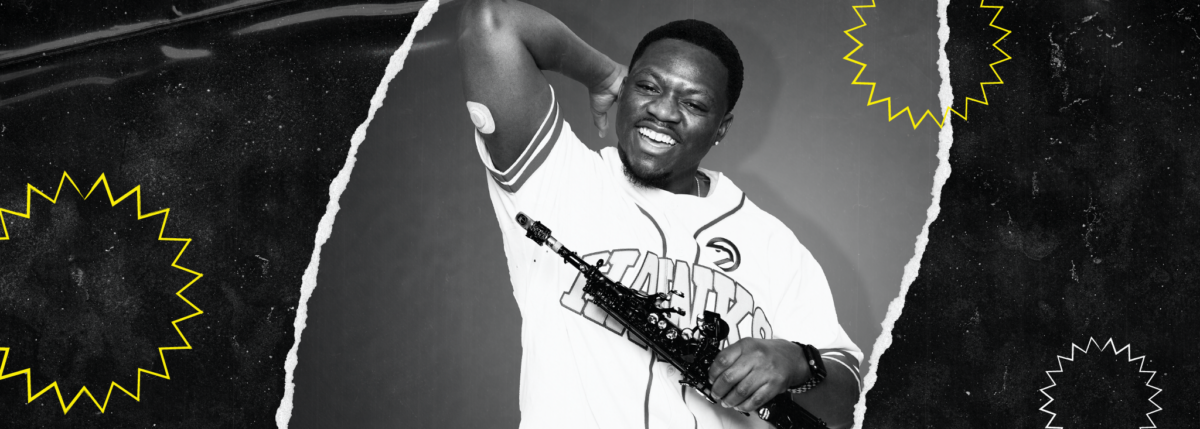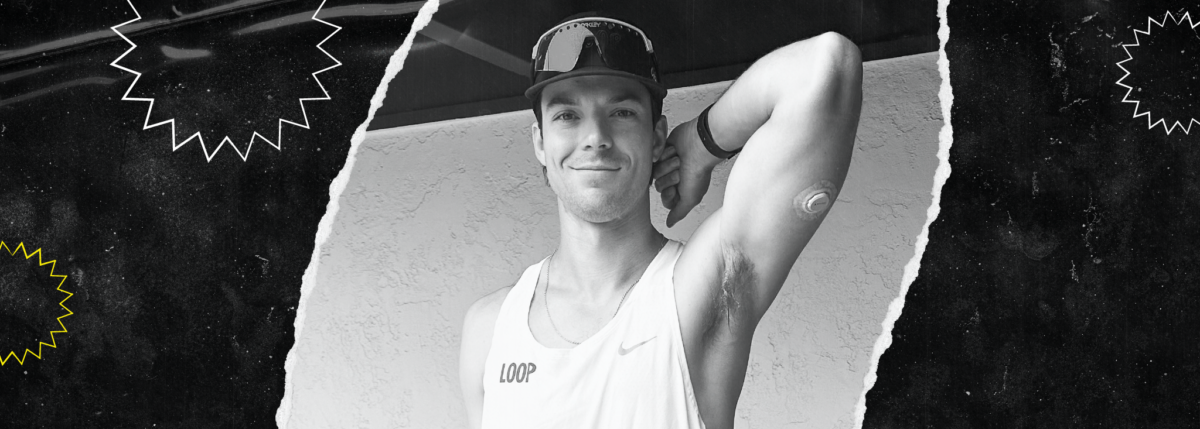Connecting Mental Health + Physical Health to Diabetes
Written by: Alexis Elliott, LCSW, LISW-CP, CDE
10 minute read
July 25, 2019
Mental health as a big part of Type 2 diabetes management. Is it an under-discussed topic? Read Alexis Elliot's thought about this important topic in Diabetes Education.
My passion is connecting the DOTS (hence the acronym of my practice) between mental health and physical health… and everything in between 🙂
From a young age, I learned that there is a lot more to this disease than meets the eye. As a child, my younger brother was diagnosed with type 1 and I was immediately fascinated. Soon after his diagnosis, I attended a summer camp for kids with diabetes, met other kids with diabetes and did my best to follow their self-management practices with blood glucose checks and saline injections.
At home, I assumed a large responsibility for my brother’s diabetes care. My understanding of the dynamics of diabetes further evolved as a teenager when I struggled to manage his HbA1c as we bounced between recently separated parents. As he grew, so did my understanding of the dynamic lifelong trajectory and course of unique struggles that accompany diabetes.
The social element, and how that evolves with the age of the person with diabetes is important to consider. The family, home and living situation is a major influence! Also depending on age this level of influence can be “make or break.” The mental health side… you could understand how a person might not care much about diabetes if they are so depressed that peeling themselves out of bed every day is an accomplishment, or if they have just lost a loved one, are in an abusive relationship, or are drowning in the stress of trying to balance work and home life…. On the behavioral front, this demonstrates that the buck doesn’t stop with education, a person has got to put that into action. Sometimes folks simply struggle with taking action, finding motivation or confidence, or simply knowing where to start.
I knew I wanted to work in diabetes since that young age. I received my bachelor’s in health promotion and became certified as a health education specialist. I then got my masters in clinical social work. I began working both doing community health education and serving as a behavioral health coach for an outpatient diabetes program. This continued to evolve and I have had the good fortune of a career that allowed me to meet with people in a variety of settings (inpatient, outpatient, community-based, now private practice). It has given me the opportunity to develop and utilize my skills as a health educator, health coach and mental health provider in the areas of chronic disease management (diabetes, obesity, hypertension and more).
My Passion for Mental Health
I really specialize in a blend of mental health, behavioral health, health coaching and health education (mental health and behavioral health are often used interchangeably, partly because of the stigma that has been around the word “mental.” But I like to distinguish that mental health refers to moods and emotions, whereas behavioral health can refer to behaviors though these are often influenced by emotions).
As a licensed mental health provider, I provide therapy services. However, this tends to be a blend of health coaching, depending on what the person brings to the table and is ready and willing to work on. Because of my unique background, I started using the title “Behavioral Health Coach” many years ago. There is still a stigma about mental health (especially in more rural areas where I started practicing), so I found that people are less willing to see a “mental health provider” or “therapist” than a “coach.” Plus, this tends to encompass the areas of both behavioral health and health coaching.
Nowadays, behavioral health providers have to be careful about the wording of these things because coaching can be an aspect of therapy but therapy cannot be a part of coaching (hope that makes sense). For this reason, I screen individuals prior to consultation in order to determine if they are more of a health coaching or counseling client.
Ultimately, I strongly believe that health behaviors (especially eating and exercise) are integral components of mental wellness. Making improvements in these areas has a direct positive impact on issues like depression and anxiety. And, when it comes to managing chronic diseases like diabetes, these are key players since they influence blood glucose, blood pressure, weight and other areas.
What many people don’t recognize is that the nutrients from the foods you eat play an important role in the chemical reactions that take place in both our brains and bodies. This includes the development and function of neurotransmitters, things like serotonin and dopamine, which play a part in the regulation of mood, emotions and other important body functions. Exercise is a natural antidepressant and has tons of mental health benefits.
 Why Mental Health is an Under-Discussed Topic in Diabetes Management
Why Mental Health is an Under-Discussed Topic in Diabetes Management
1) There is a difference between mental health and mental illness:
I think the key point is the difference between mental health and mental illness. This distinction I believe helps to bring the discussion more to the forefront and give people more confidence to discuss their mental health or identify when they could use a little help in this area. Yes, mental health is an important part of overall health and wellness. Mental illness is more of a clinical condition, it’s a situation in which one is experiencing symptoms or demonstrating behavior outside of what is expected or socially accepted behavior. If you are dealing with something of a more clinical condition, you should seek a mental health professional to properly assess and diagnose anyhow. But, you do not need to be experiencing symptoms of a psychological condition to see a behavioral health provider.
2) You don’t need to be experiencing symptoms of a psychological condition to see a behavioral health provider
So, when it comes to mental health, it is normal for us to experience tough times every now and then. That’s part of being human! Life is a rollercoaster of emotions influenced by different circumstances. But not all of these emotions are glitter and rainbows! It’s normal to go through hard times now and then. Especially when dealing with difficult circumstances, it’s not surprising that you may experience symptoms of depression, anxiety, or grief. In my years of behavioral health practice I have heard patients often ask me, “does this mean I’m crazy?” or “you’re going to think I’m nuts…” No! We all have difficult emotions and trying times.
3) The mental and emotional side of diabetes is probably much bigger than you realize.
This is especially true when it comes to life with a chronic disease, especially one that is as complex and self-managed as diabetes. When it comes to diabetes, there are a number of dynamics involved: social, mental, emotional and intellectual.
I always like to point out that the whole point of all efforts to “manage” diabetes come down to blood glucose. But we know it’s not always going to stay in the target range. Highs and lows are going to happen… And, emotional disturbances are some of the hallmark indicators of highs and lows!! Irritability, anger, hunger (or “hangry”), nervousness, anxiety, confusion, difficulty concentrating, fatigue…. Yeah, these are emotions and/or mental states, take a toll on your mental energy and resilience and may also impact your relationships or other parts of life.
Therefore, the mental and emotional side of diabetes is a part of the condition itself! Not to mention the frustrations of dealing with these or the day to day of managing diabetes which occupies a lot of your mental real estate.
4) Your brain is an organ too
A very important one at that. So take care of it. Seeking help from a mental health professional is like seeing a specialist for any other health or physical condition. It’s easy to avoid because the signs are quite as evident as things like a fever or runny nose.
5) Mental health influences physical health and vice versa.
If you have noticed, there is a surge of articles, commercials and ads that promote mental health (you may also see this described more like “stress management” “emotional health” “brain health” etc.). That’s because mainstream healthcare is finally starting to recognize the link these play! Of course, it’s something known for a long time and we all know intuitively, but now there is more science and actual research behind the impact that mental health has on physical health and the management of physical conditions.
We all know we need to eat right, be active and take our medication, but there are a ton of things that affect our ability or willpower to do it and do it consistently. We also know that physical health conditions directly influence mental health for more than the obvious reasons of bumming you out and making you feel bad.
There is mounting evidence with more research that connects mental and physical conditions. For example, inflammation has long been found to play a role in depression and many other conditions. The inflammatory response occurs in response to certain diseases, stress and trauma. When it comes to stress and trauma, that’s a big deal. We all deal with stress. Stress, when left unchecked creates issues in the body, including inflammation, increased blood pressure, sleep and appetite disturbances and other symptoms which can lead to (or contribute to) further health problems. And, the ACE study has shown a link between the number of Adverse Childhood Events and increased risk for chronic diseases. While there are several factors involved, I believe that this link has a lot to do with how people learned to cope with those negative events.
Another way your mental health affects your physical health is behaviors. Let’s be honest, if you are feeling crummy, are stressed out, or upset, how well do you take care of yourself physically? Most often we abandon or struggle to keep up healthy behaviors.
If you are stressed or upset, the last thing you want to do is exercise or make the time for it. When we are under stress, it’s easy to cut the time it takes to get in exercise and other things, and not surprising that you may forget things like taking meds. Healthy eating? It does take time and energy to plan, shop and prepare. It’s a difficult decision to maintain that when convenient and cheap options for a quick bite to eat are all around us. Then there is the coping side of things. When stressed or upset, no one craves kale, that’s just silly. They don’t call it comfort food for no reason! And if it’s not food, we often find ourselves coping with other unhealthy measures, like alcohol, which presents a whole different set of issues (especially in diabetes). The problem is that unhealthy foods and lack of exercise only further contribute to feeling down, upset, or stressed.
 Common Mental Barriers I’ve Seen in Patients/Clients
Common Mental Barriers I’ve Seen in Patients/Clients
The big ones are: 1) Stress management, 2) Figuring out how to fit healthy behaviors into their individual lives and unique circumstances, 3) Frustration and confusion with blood glucose, 4) Perfectionism/high expectations of self, 5) Diabetes burnout/diabetes distress, 6) Diabetes-specific anxieties and fears.
- Stress Management. Stress is just a part of everyday life but we really don’t give stress enough credit for the impact it has on us and our behaviors. And, when stressed it is difficult to maintain healthy behaviors. I do a lot of work with people to gain insight into their own behaviors, make self-care a priority and develop skills in areas of stress management, coping strategies, time management and energy management. This may also involve dealing with relationships.
- Figuring out how to fit healthy behaviors into their individual lives and unique circumstances. Insight into your own behaviors and your unique life situations is critical for adopting behavior change and creating a healthy lifestyle that works for you and where you are in life. My approach and strategies are going to look very different for a 65-year-old retired male versus a 35-year-old working mom with two small children. Regardless, the objective is starting where you are, what it is that you are ready to work on. We set effective and progressive goals. We identify and develop sources of support for sustainability. We highlight and utilize your unique strengths.
- Frustration and confusion with blood glucose. Many folks come to me just frustrated about their blood glucose and can’t understand why they cannot get it under control. While there are of course a number of factors, I find that this often relates to the points above. I will first help to gain insight into their own life circumstances and behaviors, including how it may help or hinder their diabetes management. This often involves self-monitoring practices. We also often find that the mental and emotional aspect may be playing a role. Stress is a biggie! It can increase your blood sugar!
- Perfectionism and high expectations for self can be a real struggle for folks. Diabetes sets the perfect stage for this and gives ammunition to negative self-talk and feelings of failure. For a lot of folks, they struggle with the idea that blood glucose and A1c is a report card, a measure of success. This creates major stress in trying to keep blood glucose (BG) in target range and discouragement for when it inevitably doesn’t happen. I find this happens a lot for folks who have more of an all or nothing thinking pattern. This sets the stage for diabetes distress and, if left unchecked, burnout.
- Diabetes burnout and distress. The first thing that I like to highlight is that diabetes distress is an actual part of having diabetes. You will experience it at one point or another, we do know times that you will be more vulnerable to diabetes distress (such as upon diagnosis) but it can happen at any time. When working with folks struggling with burnout or diabetes distress, it is important that I start with where you are, not where your doctor or family members think you should be. I work with you to help identify what your goals and motivators are, not just for diabetes, but for life! It’s important to just vent and to process emotions related to diabetes. From there we work on developing self-compassion, adjusting expectations of self, including blood glucose expectations. And again, from there setting small, progressive and effective goals for self-management for where you are.
- Diabetes-specific fears and anxieties. This includes fears of hypos, injections, or complications. It can also involve fears of being criticized by others, including family members, the “diabetes police,” which is a whole other topic, or their healthcare providers. People often tell me, “my doctor is going to be so disappointed”, “My BG has not been good lately/I’ve gained ten pounds” Navigating the feelings of judgment is important and also utilizing the steps above for burnout/distress.
Don’t give up!

Author
Alexis Elliott, LCSW, LISW-CP, CDE
Alexis is a licensed clinical social worker, a certified diabetes educator, and health education specialist. Her motto is "Don't just survive with diabetes...thrive!" She earned her bachelor's of science in health promotion from Coastal Carolina University and achieved her masters in social work from University of North Carolina Wilmington.
Related Resources

Antoine Gibson is no stranger to overcoming challenges. As a saxophonist and marathon runner living...
Read more

Danica Collins not only prepared for one of the most challenging physical events of her...
Read more

Beyond Type 1 is spotlighting inspiring athletes with type 1 diabetes as they prepare for...
Read more

